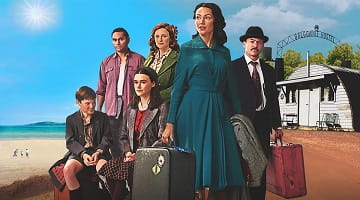2024/25 entry
BA (Hons) English, Media and Cultural Studies with Foundation Year
Clearing
Want to study with LJMU this September? Visit our Clearing hub to apply now if you have your grades or register your interest and become a Clearing Insider to receive updates while you wait for your results. Your journey starts with Clearing.
Minimum UCAS points required: TBC
Why study English, Media and Cultural Studies with Foundation Year at Liverpool John Moores University?
- Extensive range of texts studied, from Milton, Woolf and Dickens to Margaret Atwood, Kazuo Ishiguro and Arundhati Roy
- Taught by leading scholars who have published books on many topics, from Sherlock Holmes to Irish rock music and teenage bedroom culture
- Large range of option modules to choose from depending on your interests
- Work placement opportunities in Britain and overseas in teaching, public relations, international development, charities, tourism, the media, creative and heritage sectors
About your course
The BA (Hons) English, Media and Cultural Studies with Foundation Year at Liverpool John Moores University gives you an opportunity to look at how literary and media texts address their audiences.
You will achieve this through the study of media institutions, publishing and journalism, as well as forms of applied communication in practical areas including, public relations, social marketing, fiction, documentary, video games, magazines and new media. You will also examine cultural trends and practices, including popular music, youth culture, world literature, neo-Victorianism, social media, travel, and fashion. Your study of literature will be defined by an eclectic choice of texts, from the classics to popular fiction.
We are interested in traditional authors such as William Blake, Charles Dickens and Virginia Woolf and in contemporary writers such as Margaret Atwood, Kazuo Ishiguro and Arundhati Roy. Alongside British literature we study American literature and culture and Irish, postcolonial and world writing.
We introduce you to many different types of text such as detective novels, children's fiction, fairy tales, ballads, prison testimonies, African American slave narratives, travel writing, protest literature, diaries and letters. Our diverse portfolio of options lets you explore new topics and choose your own pathway through the degree as your interests develop.
The programme is designed with your future employability in mind, so you are encouraged to develop transferable skills such as research, formats for professional writing, communication, problem solving, teamwork and independent working.
Some modules ask you to engage in collaborative blogging, contributing to online archives and improving your digital skills. Although we focus on theoretical and critical study, we incorporate applied case studies and work-related learning into many aspects of the programme, including a period of work experience with a local or national organisation.
Foundation Year
The Foundation Year is ideal if you have the interest and ability to study for a degree, but do not have the qualifications to enter directly onto the English, Media and Cultural Studies honours degree programme yet.
Once you pass the Foundation Year (level 3) you will progress directly onto the first year of the honours degree. If you are a full-time UK student, you will qualify for student financial support for the full duration of your course (subject to eligibility criteria).
"The English Literature programmes at LJMU integrate the study of the authors, texts, and periods you'd expect in high-quality courses with dynamic new approaches including eco-criticism and the study of world literature. Our friendly team of expert teaching staff are research-active and are keen to help our students in their next steps.'"
Professional accreditation/links
This course has strong links with local, national and international media organisations providing excellent opportunities for student work placements and research projects. They include: Sky Sports, Liverpool Echo, Juice FM, Odeon Cinema, Everyman Theatre, The Royal Court, National Museums and Galleries on Merseyside, TATE Liverpool and the BBC.
Fees and funding
There are many ways to fund study for home and international students
Fees
The fees quoted above cover registration, tuition, supervision, assessment and examinations as well as:
- Library membership with access to printed, multimedia and digital resources
- Access to programme-appropriate software
- Library and student IT support
- Free on-campus wifi via eduroam
Additional costs
Although not all of the following are compulsory/relevant, you should keep in mind the costs of:
- accommodation and living expenditure
- books (should you wish to have your own copies)
- printing, photocopying and stationery
- PC/laptop (should you prefer to purchase your own for independent study and online learning activities)
- mobile phone/tablet (to access online services)
- field trips (travel and activity costs)
- placements (travel expenses and living costs)
- student visas (international students only)
- study abroad opportunities (travel costs, accommodation, visas and immunisations)
- academic conferences (travel costs)
- professional-body membership
- graduation (gown hire etc)
Funding
There are many ways to fund study for home and international students. From loans to International Scholarships and subject-specific funding, you'll find all of the information you need on our specialist funding pages.
Employability
The career paths followed by our graduates are varied in nature.
Alumni can be found working in advertising, marketing, public relations, museums, arts administration, media production, the publishing industry, retail, leisure and charitable organization management, educational administration, accountancy, the social services, teaching and the Civil Service.
Student Futures - Careers, Employability and Enterprise Service
A wide range of opportunities and support is available to you, within and beyond your course, to ensure our students experience a transformation in their career trajectory. Every undergraduate curriculum includes Future Focus during Level 4, an e-learning resource and workshop designed to help you to develop your talents, passion and purpose.
Every student has access to Careers Zone 24/7, LJMU's suite of online Apps, resources and jobs board via the LJMU Student Futures website. There are opportunities for flexible, paid and part-time work through Unitemps, LJMU's in-house recruitment service, and we also offer fully funded Discovery Internships.
One-to-one careers and employability advice is available via our campus-based Careers Zones and we offer a year-round programme of events, including themed careers and employability workshops, employer events and recruitment fairs. Our Start-Up Hub can help you to grow your enterprise skills and to research, plan and start your own business or become a freelancer.
A suite of learning experiences, services and opportunities is available to final year students to help ensure you leave with a great onward plan. You can access LJMU's Careers, Employability and Start-up Services after you graduate and return for one-to-one support for life.
Go abroad
LJMU aims to make international opportunities available to every student. You may be able to study abroad as part of your degree at one of our 100+ partner universities across the world. You could also complete a work placement or apply for one of our prestigious worldwide internship programmes. If you wanted to go abroad for a shorter amount of time, you could attend one of our 1-4 week long summer schools.
Our Go Citizen Scheme can help with costs towards volunteering, individual projects or unpaid placements anywhere in the world. With all of these opportunities at your feet, why wouldn’t you take up the chance to go abroad?
Find out more about the opportunities we have available via our Instagram @ljmuglobalopps or email us at: goabroad@ljmu.ac.uk.
A life-changing experience
There's so much more to university than just studying for a degree.
News and views
Browse through the latest stories and updates from the University and beyond
What you will study on this degree
Please see guidance below on core and option modules for further information on what you will study.
This course is currently undergoing its scheduled programme review, which may impact the advertised modules. Programme review is a standard part of the University’s approach to quality assurance and enhancement, enabling us to ensure that our courses remain up to date and maintain their high standard and relevancy.
Once the review is completed, this course website page will be updated to reflect any approved changes to the advertised course. These approved changes will also be communicated to those who apply for the course to ensure they wish to proceed with their application.
This course is currently undergoing its scheduled programme review, which may impact the advertised modules. Programme review is a standard part of the university’s approach to quality assurance and enhancement, enabling us to ensure that our courses remain up to date and maintain their high standard and relevancy.
Once the review is completed, this course website page will be updated to reflect any approved changes to the advertised course.
These approved changes will also be communicated to those who apply for the course to ensure they wish to proceed with their application. Where changes to modules are necessary these will be communicated, as appropriate.
Further guidance on modules
Modules are designated core or optional in accordance with professional body requirements, as applicable, and LJMU’s Academic Framework Regulations. Whilst you are required to study core modules, optional modules provide you with an element of choice. Their availability may vary and will be subject to meeting minimum student numbers.
Where changes to modules are necessary these will be communicated as appropriate.
Level 4
Core modules
Literary and Cultural Theory
20 credits
The aim of this module is to provide you with an understanding of the basic strands of literary and cultural theories, such as feminism, Marxism, postcolonial theory, and psychoanalysis. It will allow you to explore and evaluate these theoretical perspectives through practical application to literary texts as well as to other primary sources.
Level 5
Optional Modules
Short Cuts: Writing in Brief
20 credits
The aim of this module is to analyse a wide variety of short writing from the post-Second World War era to develop skills of close reading and textual analysis. You will also explore the relationship between short writing and modernity/contemporary culture.
Level 6
Optional Modules
English Independent Study
20 credits
This module will give you an opportunity to pursue your own intellectual interests to undertake an independent academic study, working on your own initiative and building strong time management skills.
Our House: Representing Domestic Space
20 credits
The aim of this module is to analyse domestic space as an important aspect of contemporary culture, to familiarize you with a range of disciplinary and philosophical traditions which have focused upon domestic space.
C21: British Fiction Now
20 credits
This module will extend your knowledge of the diversity and range of British writing in the twenty-first century in order to explore key events that shape literary culture in Britain today.
Shakespeare
20 credits
This module will reinforce the ability to critically analyse texts in close detail to examine a range of Shakespeare's plays in the context of their original cultural production.
Vamps and Villains: Exploring Gothic Fiction
20 credits
This module will examine the genre of Gothic fiction as it has developed over two centuries to explore the cultural, historical and intellectual contexts that shape the moment of its production.
World Literature: Writing from the Periphery
20 credits
This module will introduce the concept of 'world literature' through a selection of texts from the twentieth to the twenty-first centuries in relation to the rise and expansion of a global modernity. You will examine on-going critical debates around key areas of research in the global humanities: a singular modernity, the politics of translation, the periphery and the world system.
Transitions: Identities in the Interwar Years
20 credits
This module examines shifting identities and the intersections of class, sexuality, gender and regionality in British literature of the interwar years. It moves across popular, middlebrow and experimental fiction and looks at poetry, non-fiction and magazine publishing as a means of examining the changing cultural formations of the period.
Green Victorians
20 credits
This module explores how Victorian writers responded to environmental changes. It examines key historical and intellectual developments shaping debates about the natural world in the Victorian period; you consider links between the historical past and current modes of environmentalism.
Mind Readings
20 credits
This module explores the representation of the mind and mental states in literary texts, with a focus on madness and unconventional states of mind. It introduces students to the interdisciplinary study of literature alongside psycho-sciences, including psychoanalytic literary criticism, the history of psychiatry, medical-model psychology, and cognitive literary studies. Students will question established discourses and modes of representing madness and the mind in contemporary culture, challenging scientific and medical authority.
Space and place: travel writing at home and abroad
20 credits
This module enhances students' understanding of non-fiction travel literature, encouraging nuanced interpretations and effective long-form writing. It explores travel narratives' reflection of encounters with otherness, reassessment of the familiar, and their link to human identity and the non-human world. Indicative texts range from Mary Wollstonecraft to Robert Macfarlane, spanning from the late-eighteenth to the early 21st century.
Developments in Contemporary Writing and Publishing
20 credits
This module delves into contemporary literature, covering fiction, non-fiction, and poetry, and explores current debates in the English-speaking publishing world. It emphasizes how production circumstances shape contemporary texts and encourages reflection on the writer's role in modern society. Topics include women's history in the era of #Me Too, climate fiction, diversity in publishing, gender identity, freedom of speech, 'cancel culture,' and pandemic writing. Students will engage with works by various authors such as Hallie Rubenhold, Reni Eddo-Lodge, and Akwaeke Emezi.
Modern Fiction and Environment Crisis
20 credits
This module focuses on modern fiction focused on the urgent environmental crises with which we are now obliged to reckon. Some of the issues you will engage with on this module include climate, the environment as a concept, the non-human, and the alternative approaches to nature represented in indigenous narrative systems.
Black Lives in American Literature
20 credits
This module explores writing by and about African Americans from the mid-twentieth century to the present; you will consider how Black writers and artists have contested racial injustices, articulated new identities, and identified grounds for solidarity and alliance.
Migrants to the Screen
20 credits
This module focuses on recent works of transnational fiction that have been adapted for the screen. Drawing on literary studies, film studies, adaptation studies, and postcolonial studies, you will examine novels about migrants alongside their film adaptations, considered as ‘migrants’ from page to screen.
Popular Fiction and Publishing
20 credits
This module poses the question: why is popular fiction popular, and how does it maintain that popularity across a range of narrative media, including books, films, TV, comics and even games? This module offers you the opportunity to analyse storytelling across a variety of commercial narrative media forms. We currently examine two case studies - the genres of detective fiction and the thriller and consider how they adapt to changing cultural climates from the 19th century to the present day. We also analyse the production and consumption of popular fiction within the context of creative, economic and institutional imperatives, to see how publishers, film companies, and other makers and distributors of media predict and fail to predict - what will be popular.
Teaching and work-related learning
Excellent facilities and learning resources
We adopt an active blended learning approach, meaning you will experience a combination of face-to-face and online learning during your time at LJMU. This enables you to experience a rich and diverse learning experience and engage fully with your studies. Our approach ensures that you can easily access support from your personal tutor, either by meeting them on-campus or via a video call to suit your needs.
Teaching is delivered via lectures, seminars, workshops, online activities, peer presentations and film screenings and fieldwork trips (for example, to Copenhagen) and you are expected to spend a significant proportion of your time in private study, using our virtual learning environment, as well as our archives and special collections. Online discussion boards allow you to further debate, with your tutors and peers, ideas that arise in the classroom.
Work-related Learning
The programme is designed with your future employability in mind, so you are encouraged to develop transferable skills such as research, formats for professional writing, communication, problem solving, teamwork and independent working.
Some modules ask you to engage in collaborative blogging, contributing to online archives and improving your digital skills. Although we focus on theoretical and critical study, we incorporate applied case studies and work-related learning into many aspects of the programme, including a period of work experience with a local or national organisation.
We offer a range of different options in English and further opportunities in Media and Cultural Studies for work-based and work-related learning. For instance, if you choose the Working in the USA module, you will have the opportunity to spend a month or more in the United States at the end of your second year.
Past students have worked for the editor of Vogue, an advertising agency in New York, a National Park in the Appalachian Mountains, an architect's office in California and theme parks in Florida.
Support and guidance
Dedicated personal tutor, plus study skills support
If you study English, Media and Cultural Studies at LJMU, you will join a friendly and stimulating environment in which you will be encouraged to achieve your full potential in both your academic work and your future career. We pride ourselves on our informal and supportive relationship with our students.
You will be assigned a personal tutor who will be responsible for your academic and personal progress throughout the course. Along with this scheduled one-to-one support, you will receive regular feedback and guidance from your module tutors on your research, writing and study skills.
Assessment
Assessment varies depending on the modules you choose, but will usually include a combination of exams and coursework.
We believe that all students perform differently depending on how they are assessed, which is why we use a combination of assessment methods. In fact this course has received national recognition for its innovative assessment methods. They include exams (seen and unseen), essays, log books and diaries, group and individual presentations, research projects, response papers, blogs, organised debates and seminars.
Throughout your course you will be given regular constructive feedback and have opportunities to discuss this with your personal tutor and course lecturers. This is particularly useful in helping you to identify your strengths as well as the areas where you may need to put in more work.
Course tutors
Our staff are committed to the highest standards of teaching and learning
Dr James Whitehead
Programme Leader
I am Programme Leader for English and am happy to field any questions about our degree programme from current or prospective students. My research and teaching interests include Romanticism and its legacies, psychiatry and other psy-sciences in relation to nineteenth and twentieth-century literature, and life-writing (autobiography and biography) about mental health and illness. My core undergraduate teaching includes 5111ENGL Romanticism and 5108ENGL Poetry Matters. I am also very happy to discuss postgraduate study and research plans in these areas.
Facilities
What you can expect from your School
The School of Humanities and Social Science offers an ideal environment in which to expand your knowledge and horizons. Situated on Mount Pleasant in the new ‘Knowledge Quarter ' of Liverpool, the School is home to five subject areas: English, History, International Relations, Sociology, and Media, Culture & Communication. It has a lively programme of cross-disciplinary research seminars, conferences, visits from international scholars and public events. Research from the School is recognised nationally and worldwide.
The university reserves the right to withdraw or make alterations to a course and facilities if necessary; this may be because such changes are deemed to be beneficial to students, are minor in nature and unlikely to impact negatively upon students or become necessary due to circumstances beyond the control of the university. Where this does happen, the university operates a policy of consultation, advice and support to all enrolled students affected by the proposed change to their course or module.
Further information on the terms and conditions of any offer made, our admissions policy and the complaints and appeals process.










